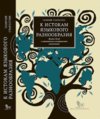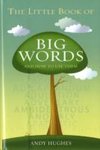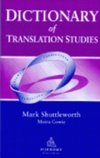
-
 Anglický jazyk
Anglický jazyk
Voli Me Tangere
Autor: Zhen Chen
My aim in this paper is to explore the role that touch plays in D. H. Lawrence (1885-1930)'s idea of human regeneration-what he calls resurrection of the body." "Voli me tangere" (touch me) is Lawrence's recasting of Jesus' "noli me tangere" (do... Viac o knihe
Na objednávku
27.86 €
bežná cena: 30.95 €
O knihe
My aim in this paper is to explore the role that touch plays in D. H. Lawrence (1885-1930)'s idea of human regeneration-what he calls resurrection of the body." "Voli me tangere" (touch me) is Lawrence's recasting of Jesus' "noli me tangere" (do not touch me) spoken to Magdalene after his resurrection. The theme of resurrection is one of the most important in Lawrence's writings. For Lawrence, resurrection of the body means the revitalization of human sensuality. It appears as the dominant theme in many of his fiction works, most prominently in The Rainbow (1915), "The Thimble" (1917), "The Horse-dealer's Daughter" (1922), "The Ladybird" (1923), Lady Chatterley's Lover (1928), and The Man Who Died (1929). Touch, for Lawrence, is a matter concerned with true human relatedness, the unconscious or spontaneous exchange of inner life between individuals. Lawrence came to believe that touch plays an important role in human regeneration, and it appears prominently in his fiction as a healing power for individuals who have the courage to undergo the death of their old mental self, which will enable them to restore the inner life and achieve their individual organic wholeness.
Because Lawrence's concept of touch and resurrection is mainly psychological in nature, in exploring these areas of his thought, this paper will draw heavily on his writings on psychology, especially Psychoanalysis and the Unconscious (1921) and Fantasia of the Unconscious (1922). Even now, when most of Lawrence's works have been annotated or commented upon numerous times, little research has been devoted on these two works. This is no doubt because of the difficulty of their style and exposition. The two books may be called Lawrence's attempt to adapt his thought to the newly evolving ideas of psychological theory current at the time. Drawing on sources in theosophy, yoga, and contemporary psychology, his expositions seem to be an attempt at a grand synthesis derived from the disparate traditions. In these two books, in presenting what he himself half-jokingly refers to as his "pseudo-philosophy," he describes an eccentric system of human consciousness in which the "unconscious," which he also calls spontaneous consciousness, is redefined as the vital life-force.
Lawrence uses the term "unconscious" with its own unique significance, and understanding its special connotations can present considerable difficulties. For example, in Fantasia of the Unconscious and Psychoanalysis and the Unconscious, Lawrence takes the term, which he probably appropriated from Freud, and adds his own special twist to it. He objects to the Freudian unconscious chiefly because it attributes the sexual motive to all human activities. Lawrence himself believes that that is only partly true; for him, the unconscious is the spontaneous source of all authentic human activities, including first of all "religious or creative" elements and secondarily sex.
Although these writings have been largely neglected because of their admitted obscurity and indeed inaccuracy from the viewpoint of modern science, they are nonetheless of essential importance to the understanding of Lawrence's art and thought. Lawrence considers modern objective science as that of a "dead world," and rejects both its method of clinical observation and its tendency to fix everything into principles. His own way is to proceed by intuition and posit what he calls "subjective science," a science "in terms of life." It is this that he tries to illuminate in these writings.
In trying to explain the role of touch plays in his idea of regeneration, I will use the psychological insights concerning body, in which the sense of touch is one of the five senses, and mind that are set forth in Psychoanalysis and the Unconscious and Fantasia of the Unconscious. For Lawrence, the body is a field of pre-mental consciousness, the mind acts only as its instrument, so to neglect the body or to put the body, especially what he calls the lower body-the source of inner life-under the control of the mind can only result in "death." This situation, which he believed is the central problem of the modern age, led him to call for regeneration in the flesh or body. He believed that restoring the body and mind to their proper roles would bring about a whole, regenerated human being. Not only does Lawrence often emphasize the need for organic wholeness of consciousness in an individual, heequally emphasizes the importance of relations and contacts between individuals. He believes that human relations, which he often identifies as "touch" in his writings, should be bodily without any mental or spiritual interference and that bodily touch that can give rise to spontaneous feeling or consciousness has a power of cure in human regeneration.
- Vydavateľstvo: Sciendo
- Rok vydania: 2022
- Formát: Hardback
- Rozmer: 236 x 160 mm
- Jazyk: Anglický jazyk
- ISBN: 9788366675773
Odporúčané tituly:
Generuje redakčný systém BUXUS CMS spoločnosti ui42.
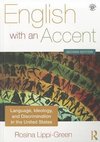


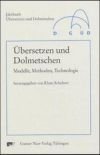
 Nemecký jazyk
Nemecký jazyk 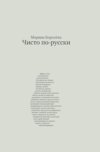
 Ruský jazyk
Ruský jazyk 

